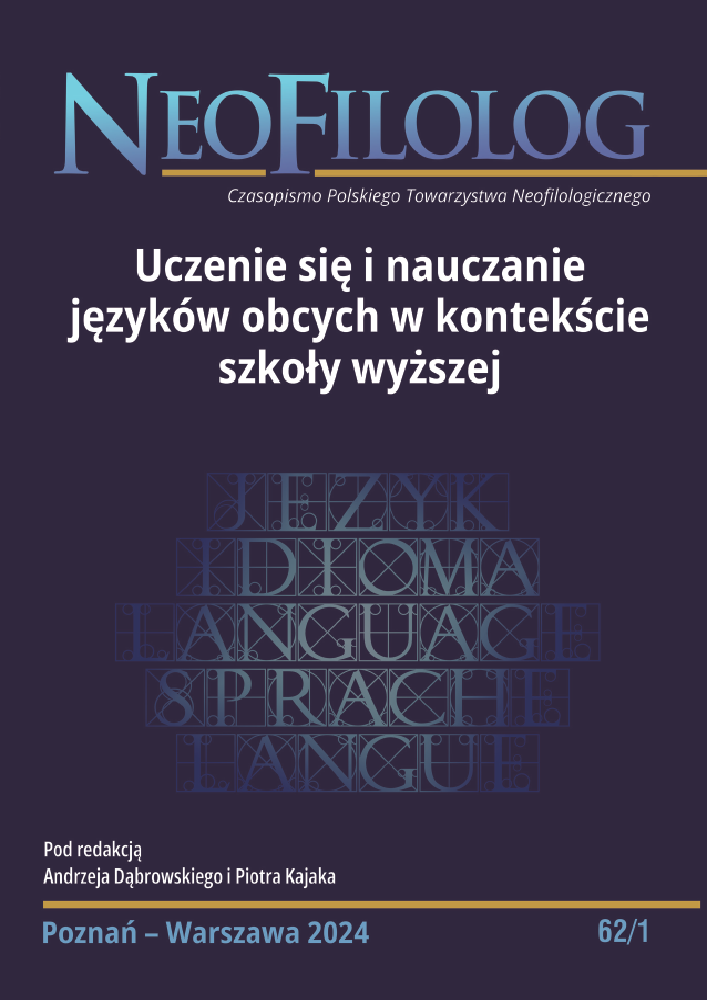Nauczanie obcych języków specjalistycznych na poziomach podstawowych. Praca z publikacją Truchcikiem z Kopernikiem. Językowe przebieżki po uniwersytecie w grupach chińskich polonistów na studiach I stopnia
Teaching foreign languages for specific purposes at elementary levels. Working with Truchcikiem z Kopernikiem. Językowe przebieżki po uniwersytecie in groups of Chinese students of Polish language and culture at bachelor level
Author(s): Monika Goszczyńska, Emilia Kubicka, Filip OlkiewiczSubject(s): Foreign languages learning, Western Slavic Languages, Higher Education , Sociology of Education
Published by: Uniwersytet Adama Mickiewicza
Keywords: languages for specific purposes; teaching foreign languages for specific purposes; Polish as a foreign language; modern language studies; Truchcikiem z Kopernikiem; Chinese students of Polish language
Summary/Abstract: Languages for specific purposes (LSP) are taught in two different contexts – for academic and for professional needs. In the first case, they are primarily tools for acquiring and processing knowledge, which is possible by knowing a number of terms. That is why B2 is indicated as the optimal level for starting their acquisition. LSP for professional purposes are primarily intended for effective communication and can be taught independently from general language proficiency. In this paper, the authors describe the findings of a survey in which Chinese students of Polish language and culture were asked to express their opinions on the publication Truchcikiem z Kopernikiem. The analysis aims to show if this book is a suitable tool for training LSP in an academic context. It covers levels from A to C (CEFR) and offers training of language in higher education for academic purposes as well as practical language training in situations typical for everyday life at the university. The respondents, representing A2-B1+ proficiency levels, found the book useful for language learning (70%) and for studying in Poland (92%). At the same time, however, 45% of them considered that the exercises were too difficult (for 50% they were adequate), which was explained by the high complexity of vocabulary. They also expressed their expectations for a higher number of grammar tasks in the book.
Journal: Neofilolog
- Issue Year: 62/2024
- Issue No: 1
- Page Range: 213-229
- Page Count: 17
- Language: Polish

